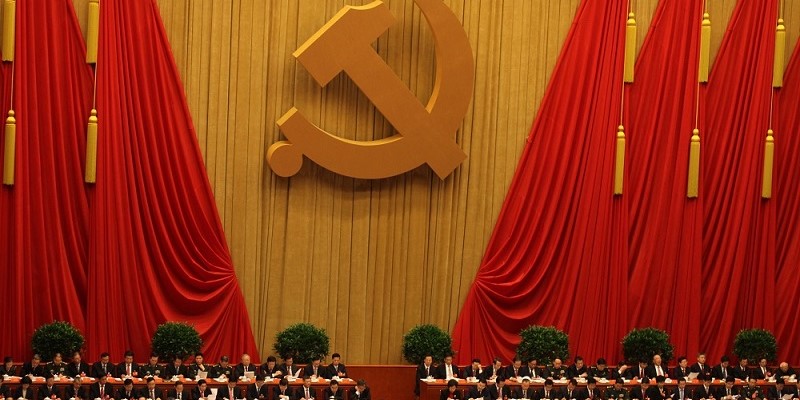China targets everyone in the world

In a little noted move, the Chinese Communist Party (CCP) flexed its imperial muscle—criminalizing criticism of it anywhere on the planet—by issuing an arrest warrant for U.S. citizen Samuel Chu, a pro-democracy advocate for Hong Kong.
In fact, by publishing this op-ed, this media outlet and I are breaking CCP laws and subject to trial by a CCP-controlled court and life imprisonment under concentration camp conditions. Be warned, just by reading this you too are breaking CCP law, as you are showing sympathy for criticism of the CCP.
Don’t think this is rhetorical overstatement. The CCP may not come for us in the near future, but it has been busy abducting foreign citizens in other countries, threatening and assaulting protesters, and attacking free speech outside of China.
While Canadians know of many bad acts by the CCP, including taking hostage two Canadians (Michael Kovrig and Michael Spavor) on spurious charges after the arrest of Meng Wanzhou in Canada, the extent to which Supreme Leader Xi Jingping has ramped up his assault on freedom internationally is less understood. And there’s no sign things will get better after they get worse—just that they will get worse.
The newest assaults rise from the security law the CCP forced on Hong Kong just over a month ago. It effectively outlaws any criticism of the party anywhere on the planet. Article 38 states: “This Law shall apply to offences… committed against the Hong Kong Special Administrative Region from outside the Region by a person who is not a permanent resident of the Region.”
In other words, the security law doesn’t just impose CCP law on Hong Kong; it imposes it on the world. The law criminalizes advocating Hong Kong independence, subversion (effectively any criticism of the CCP), terrorism (any opposition to the CCP), and working with foreign groups such as the Fraser Institute, which had deep ties in Hong Kong. I have keynoted several events in Hong Kong promoting freedom. They are now illegal and everyone involved would be arrested and thrown in prison.
The language in the law is so broad that “‘it means just what [the CCP] chooses it to mean,” to quote Humpty Dumpty. In other words, anyone can be arrested anywhere for anything the CCP chooses.
It was imposed on Hong Kong on June 30. The CCP could hardly wait to use its new toy, making for an eventful month of freedom suppression.
The first day it was in force, Hong Kong police arrested 300 protesters. The government banned a dozen pro-democracy candidates from an election scheduled for Sept. 9, then cancelled the election and arrested four young people, ages 16 to 21, for pro-democracy social media accounts. Officials have been pulling books from schools and libraries and started a purge of teachers and professors.
And now the police have asserted global power and have issued arrest warrants for six pro-democracy advocates outside Hong Kong, including U.S. citizen Chu. Other countries issue warrants for crimes committed by foreigners, but this is the first time a government has officially made criticism of its rulers an international crime. The CCP has pursued enemies outside China for years. In 2015, it abducted five Hong Kong booksellers—one, a Swedish citizen, Gui Minhai, in Thailand, at least two in mainland China, and another one, a British citizen, disappeared from Hong Kong.
China temporarily released Gui in 2017 and then re-arrested him while he was being accompanied by two Swedish diplomats. When Sweden protested, it was subject to CCP bullying, threats, insults and economic attacks, all too familiar to Canadians. "Sweden probably has the worst relationship with China of any EU country," said Bjorn Jerden, of the Swedish Institute of International Affairs.
Chinese embassy and consulate officials have orchestrated attacks on anti-CCP dissidents across the globe, including recent incidents in Britain, Australia and Canada.
CCP diplomats are the least diplomatic in the world, attacking host countries with outrageous charges, frequently labelling any criticism of the regime as racist, which is rich, given that regime mouthpieces often stoop to racist attacks. Just ask the U.S. ambassador to South Korea, a Japanese-American who was attacked by Chinese media during his time as a naval commander in the Pacific because of his "blood, background, political inclination and values." All of this was accelerated last year from the top. Chinese Foreign Minister Wang Yi ordered diplomats to assume “a fighting spirit.”
Not to mention the horrors the CCP is visiting on Uyghur Muslims, the military confrontations it orchestrates globally, and the use of loans as cudgel against governments. This has created an anti-CCP backlash across Asia, Africa, Europe, India and the Americas.
But it doesn’t matter. The CCP takes the world as its oyster. Its actions and rhetoric are becoming more bellicose. Expect worse.

